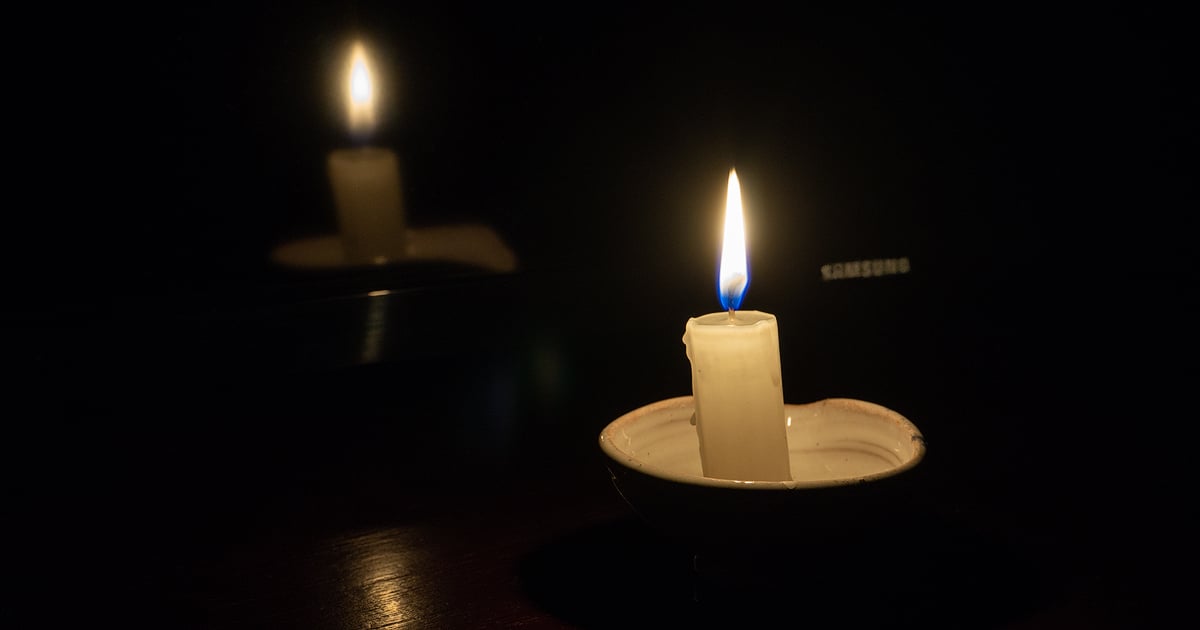The Cuban government has announced a "special electrical contingency regime" that includes scheduled power outages lasting over 72 hours if the National Electric System (SEN) fails to meet the country's energy demands. With the publication of Decree 110 in the Official Gazette this Tuesday, Miguel Díaz-Canel's administration is formalizing a type of "state of exception." Similar to the "states of alarm, exception, and siege" found in the constitutions of many countries, this grants extraordinary powers to authorities to address severe and extraordinary situations.
Declaration of Electrical Contingency
This new regulatory framework strengthens measures to control energy usage amid the ongoing energy crisis affecting the island, where total SEN collapses lasting over 72 hours have occurred, such as the unexpected shutdown of the Guiteras thermoelectric plant on October 18.
The decree empowers the Minister of Energy and Mines (MINEM) to propose this special regime to the Council of Ministers, which must approve or reject it within 48 hours. Once approved, notification will occur within 24 hours to the Central State Administration, provincial governments, and economic actors. The Electric Union (UNE) is responsible for informing the public about planned outages through mass media. Meanwhile, energy councils in each territory will determine which activities and services must be reduced or suspended during peak demand hours.
Mandatory Measures to Curtail Energy Consumption
The decree outlines strict measures to decrease energy consumption during the contingency regime, including:
- Halting high-consumption equipment: Electric furnaces, air conditioning systems, and refrigeration units must be shut down during peak hours, unless they affect stored goods.
- Restricting public lighting: Only essential lighting for road and pedestrian safety is permitted.
- Rescheduling water pumping: In areas where feasible, pumping to the population will be adjusted to avoid nighttime peak hours.
- Adjusting air conditioning temperatures: Systems must maintain temperatures at or above 25 degrees Celsius unless technical conditions dictate otherwise.
- Reducing illumination: Lighting in entities will be cut to 50% of installed capacity.
- Turning off electronic devices: Devices must be disconnected at the end of the workday.
Fines for Noncompliance
The decree also establishes a penalty regime. Non-state economic actors failing to comply with regulations will face fines of 20,000 CUP, while state entity managers will receive penalties of 5,000 CUP. Authorities authorized to oversee compliance include provincial and municipal inspectors, as well as those designated by the UNE.
Impact and Challenges
These measures come at a time when the island's electrical system faces severe generation limitations, exacerbated by breakdowns, plant maintenance, and fuel shortages. Although the decree seeks to regulate energy consumption, it also highlights the severity of Cuba's energy crisis. The prospect of planned outages exceeding 72 hours raises concerns among Cubans already dealing with daily power cuts. Additionally, restrictive measures could affect key sectors such as industrial production and water supply, increasing economic and social tensions.
While authorities justify these measures as necessary to confront the crisis, the decree raises questions about the government's ability to ensure a stable power supply in the medium term. Implementing an electrical contingency regime of this magnitude underscores the SEN's vulnerability and could intensify public dissatisfaction.
In a country where electricity is crucial for daily activities, adjusting schedules and halting services pose significant challenges for citizens and businesses. Simultaneously, economic sanctions could further burden non-state actors already facing a difficult economic environment. Decree 110 reflects a stricter energy control policy but also underscores the urgent need for sustainable solutions to Cuba's electricity crisis. Meanwhile, power outages will remain a daily reality shaping life on the island.
